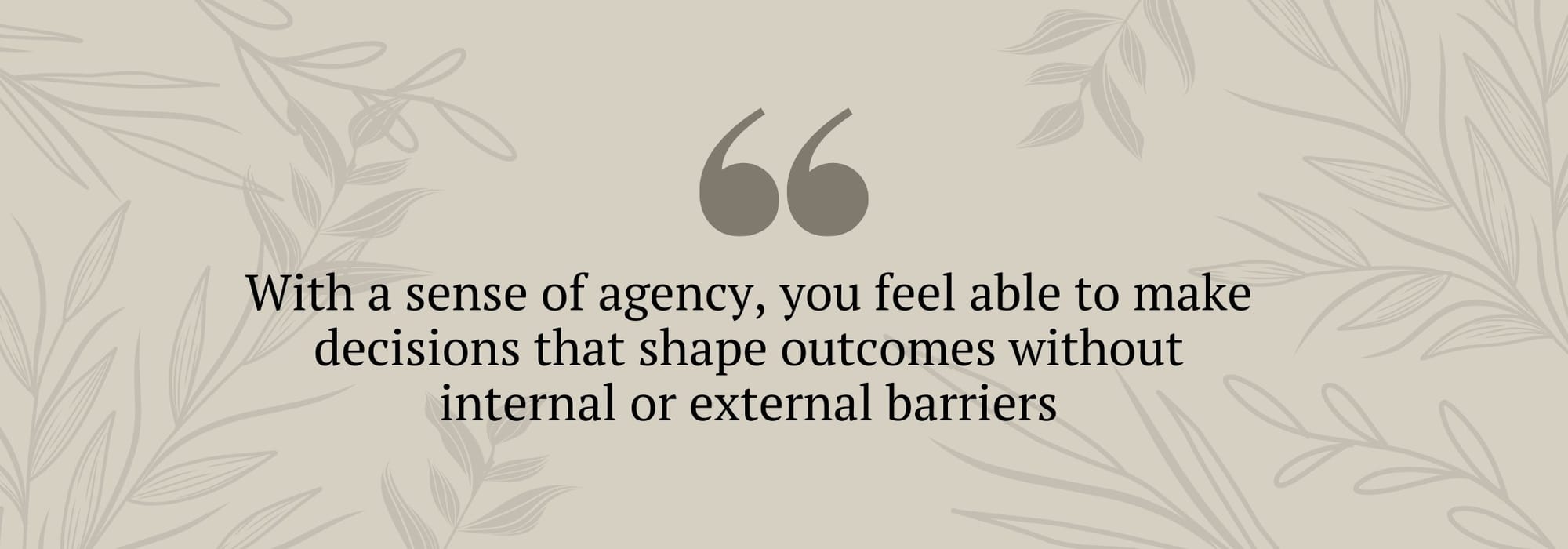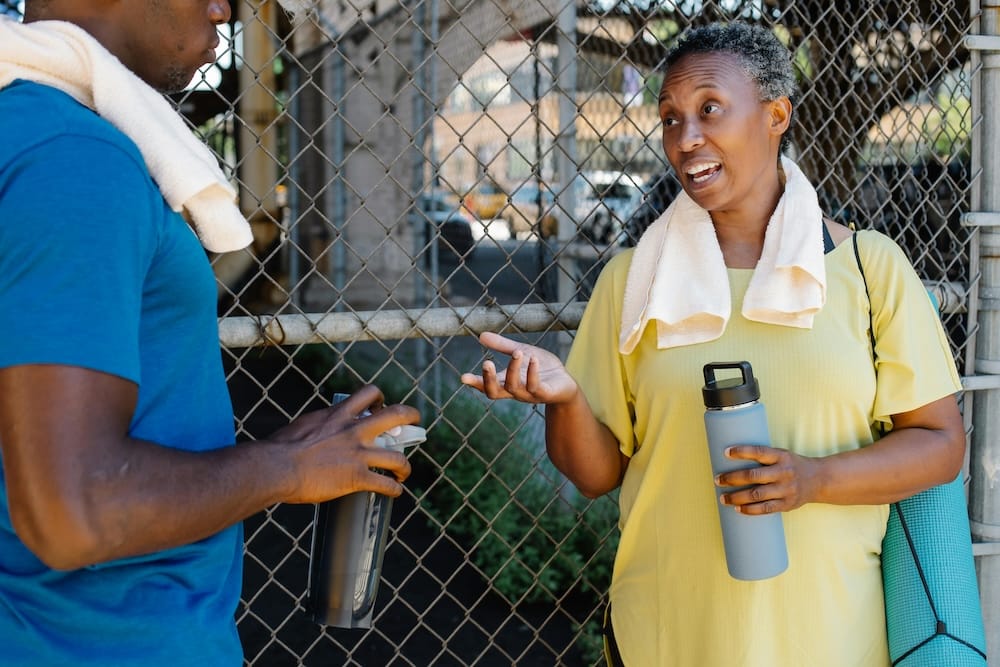Whether it’s at work or in your personal life, discover the steps you can take to develop a strong sense of self-agency
It’s thought that from as early as six weeks old, babies start to display a sense of self-agency. They may begin to make noises deliberately, and show some control over their physical movements. In toddlerhood, they learn that they have some influence over outcomes, and that they can get other people to respond to their needs. Into childhood, kids learn that their opinions and preferences matter. Then, adults often find freedom in their ability to take control and make choices.
Except, that doesn’t always happen. It might have stemmed from an early experience that made you feel like you’re preferences and opinions don’t matter, or you might now find yourself in an environment where you no longer feel you have a sense of control over your life, be that at home or at work – but whatever the cause, a weak sense of agency can be a difficult thing to live with.
“A sense of agency is essential for your wellbeing and sense of self,” explains life coach Anita Gohil-Thorp. “It’s about the freedom you feel when you have to make choices and decisions about your life, or things to do with your work and career. With a sense of agency, you feel able to make decisions that shape outcomes without internal or external barriers; for example, deciding to change your job (decision) to one that you believe will lead to personal fulfilment (outcome).”
Daniel Wegner was an American social psychologist and professor of psychology at Harvard University. It was his belief that there are three criteria involved in a sense of agency. They are: priority (the individual must have planned or thought about the action before it occurs); exclusivity (the idea that self-agency is stronger in the absence of other potential causes); and consistency (the event that happened must match the original, planned action). Daniel Wegner’s conditions align with other studies, which have found a consistent relationship between planning, or putting in thought prior to the action, and then achieving the planned action, and the sense of self-agency.
That said, Anita notes, importantly, that a healthy sense of self-agency does not mean that you have complete control of everything – in most scenarios, there will be many factors that mean that some things will not be within our ability to change. “However, if you feel that your ability to make decisions is frequently blocked by such external factors – such as imposed time constraints, a controlling person, peer or amily expectations – your sense of agency can be diminished,” Anita explains. “Your own inner sabotaging thoughts may also diminish your sense of agency, for example, if you lack confidence to make a decision in a particular area of your life.”

In a 2019 study, published in the Journal of Affective Disorders, it was found that there is a link between lower self-agency and worse depression and anxiety – at the same time, high levels of depression and negative life events were linked to a lower sense of self-agency. Anita adds that a low sense of self-agency may also lead to a dip in your self-esteem, your productivity, and your motivation – affecting many aspects of your wellbeing.
“In my work, clients often feel their sense of agency is obstructed,” Anita says. “One area is where a person with the requisite competencies feels they are nevertheless being micromanaged; their line manager emails them incessantly and requests all external emails to go via them, too. It can also be present in personal relationships. For example, one client talked about their partner not allowing them to have a say in where they moved, and this led to my client feeling undermined and out of control, as if this huge decision was taken out of their hands.”
How can I build a better sense of self-agency? Anita shares the following steps:
1. Understand your goals and values. “I often start a coaching relationship with my clients with this step, as it can be the first time they have actually thought about such life-affirming matters. I ask them to identify what really matters to them, personally and professionally, as greatest fulfilment comes when what we do and who we are is aligned with our identified values. From there, you then have a greater sense of agency over where you want to go.”
2. Develop self-awareness. “As you reflect and notice any patterns in where your sense of agency is hindered, you can also notice how you tend to behave. From this, you can start to consider what you want to change – and seek support to do that. Consider talking to your manager or partner about where you want greater autonomy or agency.”
2. Focus on what is in your control. “We cannot control everything, and there will be challenges at work or personally, and it’s important to appreciate where you can have influence. You can control your attitude, your approach to challenges, your effort, and your decisions – and this more open or ‘growth’ mindset can help regulate any negative emotions when you feel your sense of agency is being encroached upon. For example, if you dislike a key part of your job, you might notice that it helps to develop a core skill that will subsequently help your career – by thinking of it this way, you decide what your next step is.”
4. Communicate and collaborate. “Learn to advocate for yourself in a way that offers a different solution, which also works for wider relationship or workplace goals.”

5. Seek support. “If you struggle to build your sense of agency, and open communication does not resolve any identified issues, consider support from a coach or other service that is impartial to your situation. Taking control in this regard can also help you to feel you are taking positive action to enhance your life experience.”
Putting yourself in the driver’s seat
Depending on what it is that has resulted in you feeling you do not have self-agency in your life, the work that you need to put in to put yourself in the driver’s seat will differ, and you may find that it is something you would prefer to do with the support of a mental health or wellbeing professional, such as a life coach or counsellor.
But whatever your starting point, the journey is worth it. Self-agency is at the centre of the human experience, and you deserve every ounce of it.


Comments